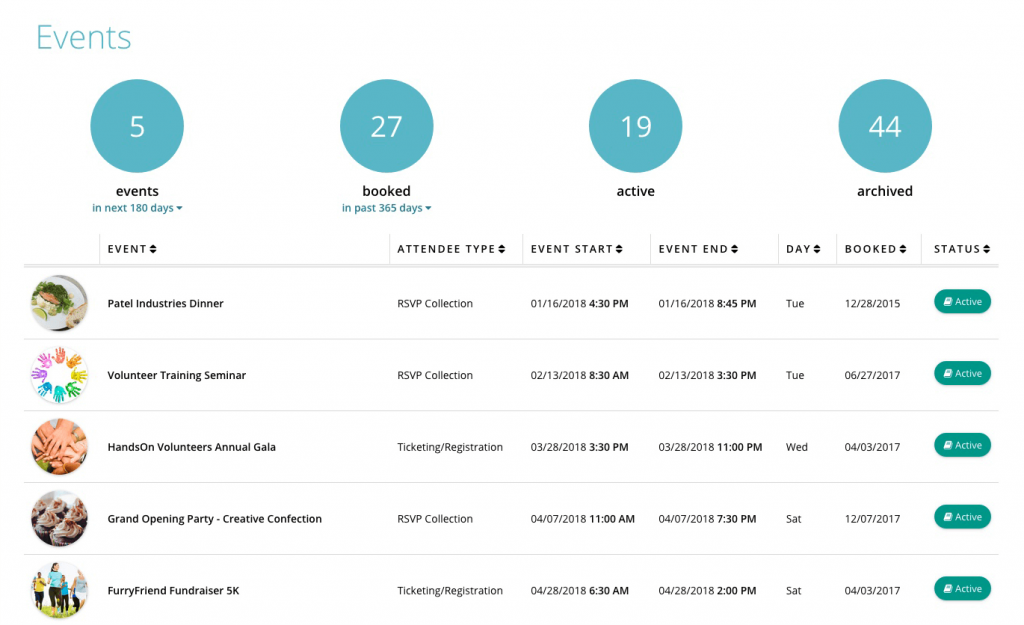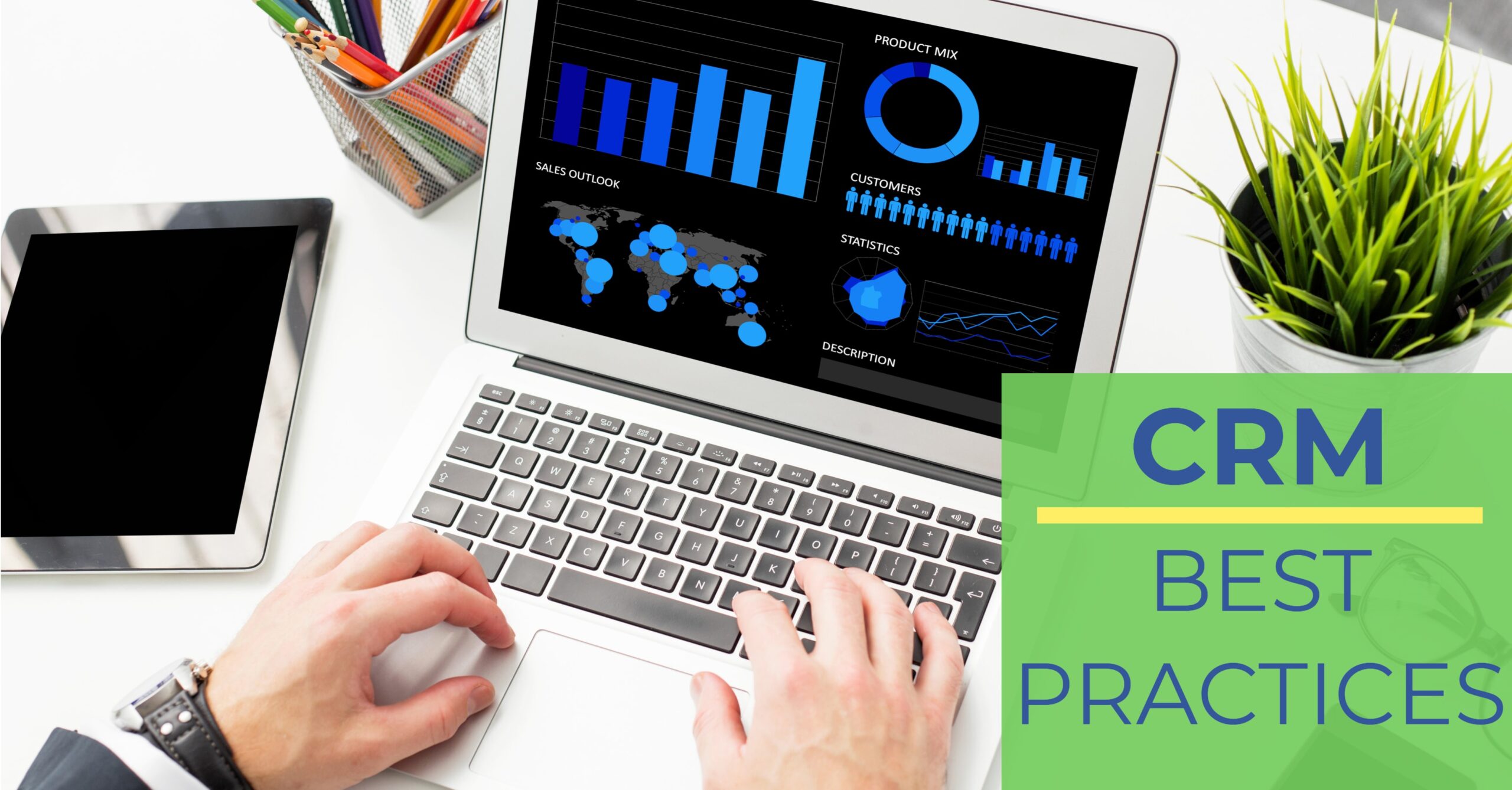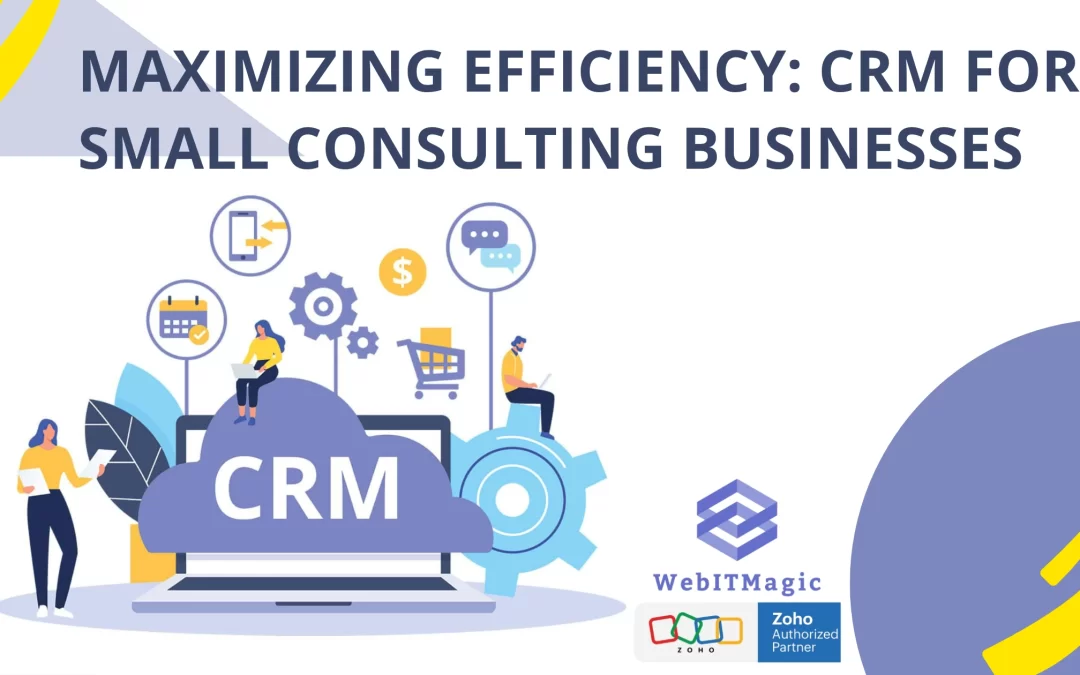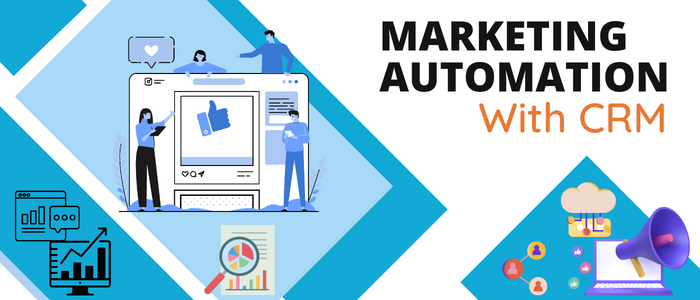Supercharge Your Events with CRM: A Comprehensive Guide to Event Planning & Marketing

In the ever-evolving landscape of event planning and marketing, staying ahead of the curve is crucial. That’s where the power of Customer Relationship Management (CRM) comes into play. It’s no longer just about managing contacts; it’s about orchestrating a symphony of interactions to create unforgettable event experiences. This comprehensive guide dives deep into the art and science of CRM-powered event planning and marketing, equipping you with the knowledge and strategies to transform your events from ordinary to extraordinary.
Understanding the Synergy: CRM and Event Planning
At its core, CRM is a system for managing and analyzing customer interactions and data throughout the customer lifecycle. When integrated with event planning, CRM becomes an invaluable asset, enabling you to:
- Personalize event experiences: Tailor event invitations, content, and follow-up based on individual attendee preferences and past interactions.
- Improve event ROI: Track event-related costs, revenue, and lead generation to measure and optimize your event’s financial performance.
- Streamline event processes: Automate tasks such as registration, email marketing, and post-event surveys, saving time and resources.
- Enhance attendee engagement: Foster stronger relationships with attendees by providing relevant and timely communications.
- Gain valuable insights: Analyze event data to understand attendee behavior, identify trends, and refine your event strategies.
The marriage of CRM and event planning is a strategic move, allowing you to understand your audience better, personalize their experiences, and ultimately, drive more successful events. It’s about building relationships, not just managing transactions.
Key Benefits of Using CRM for Event Planning and Marketing
The advantages of leveraging CRM in your event strategy are numerous and far-reaching. Here are some of the most impactful benefits:
1. Targeted Marketing and Segmentation
CRM allows you to segment your audience based on various criteria, such as demographics, interests, past event attendance, and purchase history. This segmentation enables you to create highly targeted marketing campaigns, ensuring that your messages resonate with the right people. For example, you can send exclusive invitations to VIP attendees or customize email content based on their previous event interactions.
2. Automated Event Registration and Management
CRM systems can automate the event registration process, making it seamless and efficient for both you and your attendees. This includes features such as online registration forms, automated confirmation emails, and payment processing. Automation frees up your team from tedious manual tasks, allowing them to focus on more strategic initiatives.
3. Enhanced Attendee Engagement
CRM empowers you to engage with attendees before, during, and after the event. You can send pre-event reminders, share event agendas, and provide updates on speakers and activities. During the event, you can use CRM to facilitate networking opportunities and gather real-time feedback. Post-event, you can send thank-you notes, share event materials, and gather feedback through surveys. This continuous engagement fosters stronger relationships and increases attendee loyalty.
4. Data-Driven Decision Making
CRM provides valuable data and analytics on event performance. You can track key metrics such as registration rates, attendance rates, lead generation, and event ROI. This data allows you to make informed decisions about future events, optimizing your strategies for maximum impact. You can identify what worked well, what didn’t, and what improvements can be made.
5. Improved Lead Generation and Nurturing
Events are excellent opportunities to generate leads. CRM helps you capture lead information during the registration process and at the event itself. You can then nurture these leads through targeted email campaigns and personalized follow-up. CRM allows you to track lead progress through the sales funnel, helping you convert leads into customers.
6. Cost Reduction and Efficiency
By automating tasks and streamlining processes, CRM can help you reduce event-related costs and improve efficiency. For example, automated email marketing can save you time and money compared to manual outreach. CRM also allows you to track event expenses and identify areas where you can optimize your budget. This focus on efficiency frees up resources to be invested elsewhere.
Choosing the Right CRM for Your Event Needs
Selecting the right CRM platform is critical to your event planning success. Several factors should be considered:
1. Event Management Features
Look for a CRM that offers robust event management features, such as event registration, ticketing, email marketing, and event promotion tools. Some CRM platforms are specifically designed for event management, while others offer event-related integrations.
2. Integration Capabilities
Ensure that the CRM integrates with other tools you use, such as email marketing platforms, social media platforms, and payment processors. This will allow you to streamline your workflow and avoid data silos.
3. Scalability
Choose a CRM that can scale with your business. As your events grow, you’ll need a CRM that can handle increased data volume and user traffic.
4. User-Friendliness
Select a CRM that is easy to use and navigate. A user-friendly interface will make it easier for your team to adopt the system and utilize its features. The system should be intuitive and easy to learn.
5. Reporting and Analytics
The CRM should provide comprehensive reporting and analytics capabilities, allowing you to track key metrics and measure event performance. This includes features such as data visualization and custom reporting options.
6. Pricing and Support
Consider the pricing structure and support options offered by different CRM providers. Choose a CRM that fits your budget and provides the level of support you need. Look for a provider that offers training and resources to help you get the most out of the system.
Some popular CRM platforms for event planning include:
- HubSpot: Known for its marketing automation features and ease of use.
- Salesforce: A powerful platform with extensive customization options.
- Zoho CRM: A cost-effective option with a wide range of features.
- Pipedrive: Ideal for sales-focused event management.
- Eventbrite: While primarily an event ticketing platform, it offers basic CRM functionalities.
Step-by-Step Guide: Planning and Marketing Events with CRM
Implementing CRM into your event planning process involves several key steps. Here’s a detailed guide to help you get started:
1. Define Your Event Goals and Objectives
Before you begin, clearly define your event goals and objectives. What do you hope to achieve with your event? Are you aiming to generate leads, increase brand awareness, or drive sales? Having clear goals will help you measure the success of your event and guide your marketing efforts.
2. Segment Your Audience
Use your CRM to segment your audience based on relevant criteria, such as demographics, interests, and past interactions. This segmentation will allow you to create targeted marketing campaigns and personalize your event communications.
3. Create Event-Specific Landing Pages and Registration Forms
Design attractive and informative landing pages for your event. Integrate these pages with your CRM to capture registration data and track attendee information. Make the registration process simple and user-friendly.
4. Develop a Targeted Email Marketing Strategy
Use your CRM to create a series of automated email campaigns to promote your event, send reminders, and share event updates. Personalize your emails based on audience segmentation and past interactions. Consider using different email sequences for various segments.
5. Leverage Social Media
Integrate your CRM with your social media platforms to promote your event and engage with your audience. Use social media to share event updates, run contests, and drive traffic to your event landing pages.
6. Manage Event Communications
Use your CRM to manage all event-related communications, including invitations, reminders, and post-event follow-up. Ensure that your communications are timely, relevant, and personalized. Consider using a chatbot or virtual assistant for quick responses to attendee questions.
7. Track and Analyze Event Data
Use your CRM to track key event metrics, such as registration rates, attendance rates, and lead generation. Analyze this data to measure the success of your event and identify areas for improvement. Use data visualizations to showcase your results.
8. Follow Up with Attendees
After the event, use your CRM to follow up with attendees. Send thank-you notes, share event materials, and gather feedback through surveys. This follow-up will help you nurture relationships and drive future event participation.
9. Integrate with Other Tools
Connect your CRM with other tools, such as email marketing platforms, social media platforms, and payment processors. This integration will streamline your workflow and avoid data silos. This includes integrating with project management tools to ensure seamless coordination.
10. Continuously Improve Your Process
Regularly review your event planning and marketing strategies. Analyze your data, gather feedback, and make adjustments as needed. The event planning process should be one of continuous improvement.
Advanced CRM Strategies for Event Excellence
Once you’ve mastered the basics, you can leverage advanced CRM strategies to take your event planning and marketing to the next level:
1. Personalized Event Experiences
Use your CRM to personalize event experiences based on individual attendee preferences and past interactions. This could include personalized welcome messages, customized agendas, and tailored content. This level of personalization is what sets an event apart.
2. Predictive Analytics
Leverage predictive analytics to forecast event attendance, identify potential risks, and optimize your marketing efforts. CRM systems can analyze historical data to predict future trends and provide insights to improve decision-making. This allows for proactive adjustments.
3. Mobile Event Apps
Integrate your CRM with a mobile event app to provide attendees with a seamless event experience. The app can provide attendees with access to event agendas, speaker information, networking opportunities, and real-time updates. This enhances the overall experience.
4. Gamification
Incorporate gamification into your event to increase attendee engagement and participation. Use your CRM to track attendee progress, award points, and provide rewards. This creates a fun and interactive experience.
5. Real-Time Feedback and Surveys
Use your CRM to gather real-time feedback from attendees during the event. This can include surveys, polls, and interactive Q&A sessions. This feedback can be used to improve the event experience in real-time and identify areas for improvement in future events.
6. Social Listening
Monitor social media conversations related to your event using your CRM. This allows you to identify brand mentions, track sentiment, and respond to attendee inquiries and concerns. This helps you manage your online reputation.
7. A/B Testing
Use A/B testing to optimize your marketing campaigns and event communications. Test different email subject lines, landing page designs, and call-to-actions to see what resonates best with your audience. This is a key step in refining your marketing.
8. Integration with Sales Automation
Integrate your CRM with your sales automation tools to streamline lead generation and nurturing. This will ensure that leads generated at your event are seamlessly integrated into your sales pipeline. This helps with lead conversion.
Measuring the Success: Key Metrics to Track
To truly understand the impact of your CRM-powered event planning and marketing, you need to track the right metrics. Here are some key performance indicators (KPIs) to monitor:
- Registration Rate: The percentage of people who register for your event.
- Attendance Rate: The percentage of registered attendees who actually attend your event.
- Lead Generation: The number of new leads generated at your event.
- Lead Conversion Rate: The percentage of leads that convert into customers.
- Event ROI: The return on investment for your event.
- Attendee Satisfaction: Measured through post-event surveys and feedback.
- Website Traffic: The traffic to your event landing pages.
- Social Media Engagement: Likes, shares, and comments on your event-related content.
- Cost per Lead: The cost of generating a new lead at your event.
- Customer Lifetime Value (CLTV): This metric helps assess the long-term value of the customers acquired through your events.
By tracking these metrics, you can gain valuable insights into the effectiveness of your event planning and marketing efforts. These metrics will help you optimize your strategies and drive better results.
Overcoming Challenges and Common Pitfalls
While CRM offers numerous benefits for event planning and marketing, there are also potential challenges to be aware of:
- Data Silos: Ensure that your CRM integrates with all other relevant tools and systems to avoid data silos.
- Lack of Integration: If your CRM doesn’t integrate with your event management tools, you’ll miss out on efficiency gains.
- Poor Data Quality: Maintain clean and accurate data in your CRM to ensure that your marketing campaigns are effective.
- Lack of Training: Provide adequate training to your team on how to use the CRM and its features.
- Resistance to Change: Address any resistance to change from your team and provide support and guidance.
- Ignoring Feedback: Always listen to attendee feedback and use it to improve future events.
- Not Focusing on the Customer: Always put the customer at the center of your event strategy.
By addressing these challenges, you can maximize the benefits of CRM and ensure that your event planning and marketing efforts are successful.
The Future of CRM in Event Planning and Marketing
The integration of CRM and event planning is an ongoing evolution. As technology advances, we can expect to see even more sophisticated CRM features and capabilities emerge:
- AI-powered personalization: AI will enable even greater personalization, tailoring event experiences to individual attendee preferences and behaviors.
- Virtual and hybrid events: CRM will play a crucial role in managing and measuring the success of virtual and hybrid events.
- Advanced analytics: CRM will provide even more in-depth insights into event performance, enabling data-driven decision-making.
- Increased automation: Expect even more automation, streamlining event processes and saving time and resources.
- Seamless integration: CRM will seamlessly integrate with a wider range of tools and platforms.
Staying abreast of these trends will be critical for event planners and marketers who want to stay ahead of the curve. The future of event planning is undoubtedly data-driven, personalized, and highly efficient, all powered by the capabilities of CRM.
Conclusion: Embracing CRM for Event Success
In conclusion, integrating CRM into your event planning and marketing strategy is no longer optional – it’s essential for success. By leveraging the power of CRM, you can personalize event experiences, improve event ROI, streamline processes, enhance attendee engagement, and gain valuable insights. From targeted marketing to data-driven decision-making, CRM empowers you to create unforgettable events that drive results.
By following the steps outlined in this guide, you can successfully plan and market events with CRM, overcoming challenges and embracing the future of event planning. So, embrace the power of CRM, and transform your events from ordinary to extraordinary. Don’t just plan events; create experiences. Embrace the future, and watch your events thrive.




